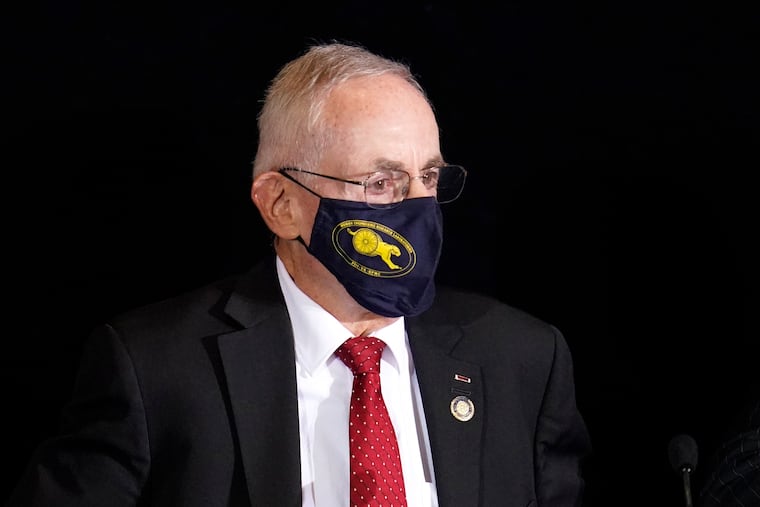Pa.’s largest pension plan hires lawyers to probe its mistake
The investigators will scrutinize what went wrong with the way PSERS reported investment results in December.

The board of the $62 billion Pennsylvania public-school pension system on Friday hired a pair of law firms to look into what the fund is now calling a “misstatement” in its profit reporting.
The Anglo-American law firm Womble Bond Dickinson will investigate what the board had previously called an “error” while Philadelphia-based Morgan Lewis will check the math and tax issues.
The mistake may have wrongly spared teachers a potential hike in their pension payments while simultaneously passing that burden onto taxpayers.
The audit and compliance committee for the board of PSERS — the Public School Employees’ Retirement System — met behind closed doors on Friday for the third time this week over the issue. The committee, headed by State Rep. Frank Ryan (R., Lebanon) voted unanimously to hire the two firms after reviewing teams of lawyers earlier this week.
The investigators will scrutinize what went wrong with the way PSERS reported investment results in December. Those performance numbers are critical because they are used for a so-called “shared risk” calculation to figure out how much taxpayers and school staff must pay to fund the system.
Womble Bond Dickinson is charged with “a thorough and independent investigation of the circumstances surrounding the inaccurate reporting of PSERS’ investment performance numbers,” state Treasurer Stacy Garrity, a board member, said in a statement.
The firm has offices in nine United Kingdom cities and 19 in the United States. It does not have a Philadelphia office.
Morgan Lewis will “examine federal tax qualification issues involved with the shared risk calculation,” she said. She provided no further explanation.
The board in December officially concluded that PSERS yearly investment returns had averaged 6.38% — just enough to avoid a threatened increase in teacher payroll deductions. The state’s “risk sharing” law requires school staff to pay more, as taxpayers do, when PSERS investments underperform.
But on March 12 in a terse announcement, the PSERS board said it “was recently made aware of an error regarding the reporting of investment performance numbers.”
The Inquirer reported how some dissident trustees were skeptical of the performance numbers in December, and how top PSERS officials insisted the figures were accurate.
In a later written statement, board chairman Chris Santa Maria, said taxpayers and teachers have not “paid any more or less because the rates set in December 2020 were all prospective and not in effect yet.”
He also said: “We do not have any information at this time that anything criminal occurred.”
“Our present concern resulted from the admission of an error by one of our outside consultants,” he added. ”This error was brought to the attention of the board by PSERS management.”
PSERS officials wouldn’t say who made the error, pending the investigation.
The original performance report was compiled by a unit of New York-based Buck Global LLC, using PSERS data collected from a unit of Aon Investment Consulting Inc.
Buck was paid $226,000 for actuarial services — projections of future pension costs — for PSERS in the current fiscal year. Aon, based in Illinois, collected $763,000 for “general investment consulting.”
The 6.38% return was below the system’s official target figure (now 7.25% a year) but just above the lower 6.36% threshold needed to avoid an increase in pension payments from 100,000 school employees hired since 2011.
Using state data, The Inquirer estimated teachers would have to pay more than $25 million a year if returns had come in lower — a bump over their current payment of $1.1 billion yearly.
PSERS officials declined to comment on that estimate or provide their own, citing the pending investigation.